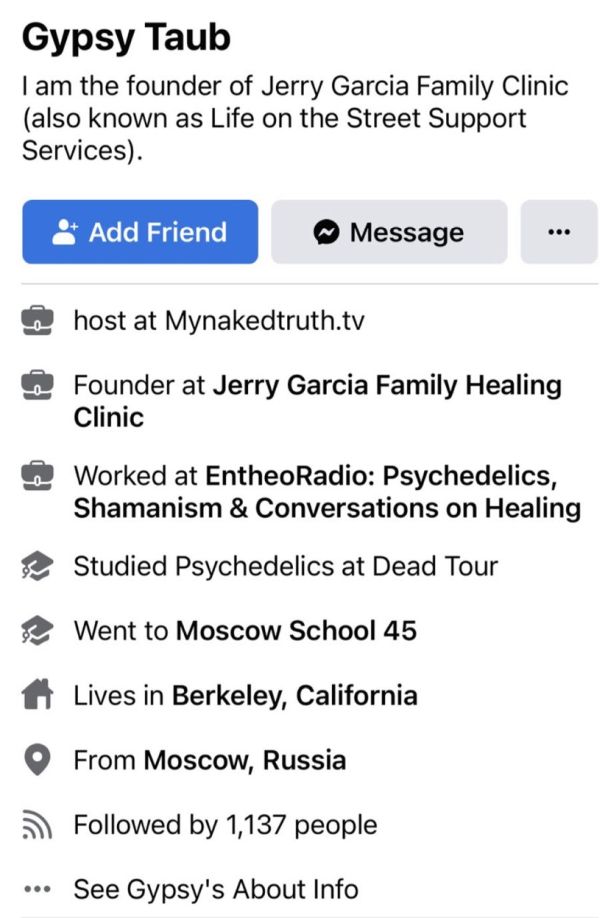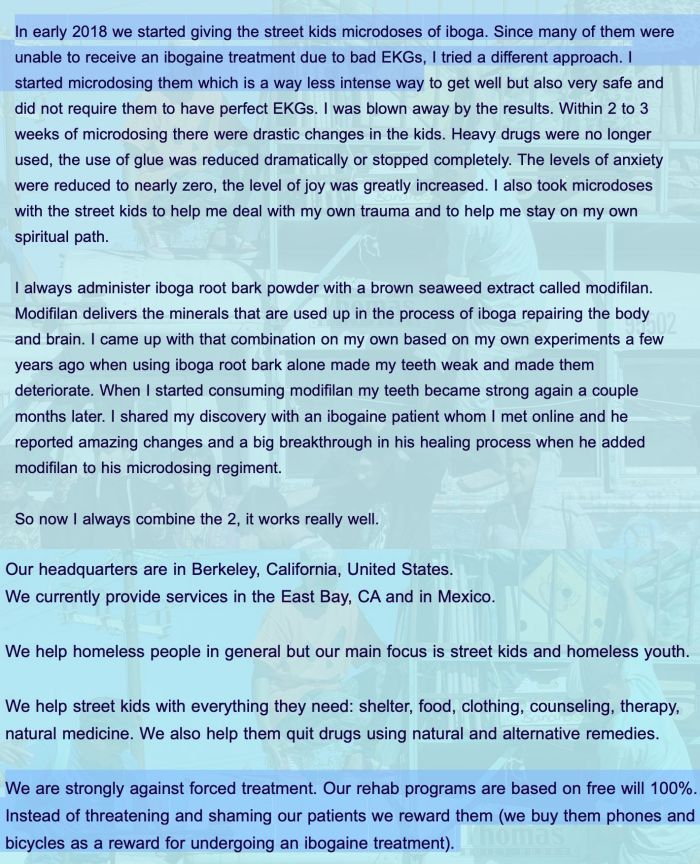It looks like you're using an Ad Blocker.
Please white-list or disable AboveTopSecret.com in your ad-blocking tool.
Thank you.
Some features of ATS will be disabled while you continue to use an ad-blocker.
share:
Panic!
Let's Declare A Pandemic Amnesty
"We need to forgive one another for what we did and said when we were in the dark about Covid."
How about accountability? I'm wondering about the timing or even the placement of this article in the Atlantic. October 31st , Halloween/ trick or treat. This would be certain to more than inflame people, as is evident on Twitter.
I wonder if this relates to the last ku drop #4958
What is at stake?
Who has control?
SURPRISE WITNESS?
Who was surprised?
Who will be surprised?
Use your logic.
Can emotions be used to influence decisions?
How can you control emotions?
Define "Plant".
How do you insert a plant?
Who is Cassidy Hutchinson?
Trust the plan.
Just a thought but we could just replace the "Plant" name. In this case Professor Emily Oster.
Professor Emily Oster Tweet AmnistyPleaseee...
Could also link posts dark to light. After all they claim they were in the dark.
Let's Declare A Pandemic Amnesty
"We need to forgive one another for what we did and said when we were in the dark about Covid."
How about accountability? I'm wondering about the timing or even the placement of this article in the Atlantic. October 31st , Halloween/ trick or treat. This would be certain to more than inflame people, as is evident on Twitter.
I wonder if this relates to the last ku drop #4958
What is at stake?
Who has control?
SURPRISE WITNESS?
Who was surprised?
Who will be surprised?
Use your logic.
Can emotions be used to influence decisions?
How can you control emotions?
Define "Plant".
How do you insert a plant?
Who is Cassidy Hutchinson?
Trust the plan.
Just a thought but we could just replace the "Plant" name. In this case Professor Emily Oster.
Professor Emily Oster Tweet AmnistyPleaseee...
Could also link posts dark to light. After all they claim they were in the dark.
Leaked Documents Outline DHS's Plans to Police Disinformation
Why am I not surprised? Facebook had a special portal > "There is a formalized process for gov't officials to directly flag content on Facebook and Instagram and request that it be throttled or surpressed-SFP- that requires a gov't or law enforcement e-mail to use."
So from these leaked documents we can see that the Department of Homeland Security and the FBI colluded with Facebook and Twitter to engage in censorship so that they could establish the narrative around political goals such as Covid and the Presidential election.
Right before the 2020 election they met at least monthly with a wide range of influential tech companies ie Facebook, Twitter, Instagram, Microsoft, Linked-In, Wikipedia, Discord Media to ensure that there was a unified plan of action to form the narrative.
Just to cover their tracks Geoffe Hale, the director of the Election Security Initiative @ CISA recommended that they use a "third party information sharing non profits as a clearing house for most trust information to avoid the appearance of government propaganda."
Seems a number of agents on the FBI International Terrorist Division were reassigned to focus on warrantless monitoring of American citizens which they were not quite on board with.
Hunter Biden lab story?
"Elvis Chan, an FBI special agent in the San Francisco field office and Dehmlow, the section head of the FBI's Foreign Influence Task Force "were involved in high level communications that allegedly 'led to Facebook's suppression of the NY Post reporting on the Hunter Biden laptop story."
Well according to Biden Administration lawyers those social media agencies did this on their own.
#4838
What happens if CIA was actively involved in domestic targeting and surv of U.S. person [s] [direct_indirect]
How does one agency attach itself to another?
"the CIA is restricted in the collection of intelligence information directed against U.S. citizens. Collection is allowed only for an authorized intelligence purpose."
Why am I not surprised? Facebook had a special portal > "There is a formalized process for gov't officials to directly flag content on Facebook and Instagram and request that it be throttled or surpressed-SFP- that requires a gov't or law enforcement e-mail to use."
So from these leaked documents we can see that the Department of Homeland Security and the FBI colluded with Facebook and Twitter to engage in censorship so that they could establish the narrative around political goals such as Covid and the Presidential election.
Right before the 2020 election they met at least monthly with a wide range of influential tech companies ie Facebook, Twitter, Instagram, Microsoft, Linked-In, Wikipedia, Discord Media to ensure that there was a unified plan of action to form the narrative.
Just to cover their tracks Geoffe Hale, the director of the Election Security Initiative @ CISA recommended that they use a "third party information sharing non profits as a clearing house for most trust information to avoid the appearance of government propaganda."
Seems a number of agents on the FBI International Terrorist Division were reassigned to focus on warrantless monitoring of American citizens which they were not quite on board with.
Hunter Biden lab story?
"Elvis Chan, an FBI special agent in the San Francisco field office and Dehmlow, the section head of the FBI's Foreign Influence Task Force "were involved in high level communications that allegedly 'led to Facebook's suppression of the NY Post reporting on the Hunter Biden laptop story."
Well according to Biden Administration lawyers those social media agencies did this on their own.
#4838
What happens if CIA was actively involved in domestic targeting and surv of U.S. person [s] [direct_indirect]
How does one agency attach itself to another?
"the CIA is restricted in the collection of intelligence information directed against U.S. citizens. Collection is allowed only for an authorized intelligence purpose."
a reply to: OveRcuRrEnteD
This is the best thread I've seen so far on this.
Very similar to Robert Crimo - Highland Park shooter's mom profile:

It gets worse.
 Jerry Garcia Family Clinic
Jerry Garcia Family Clinic
Cocktail vibes of Q2663.😬
This is the best thread I've seen so far on this.
Sometime around 1992, Taub moved to San Francisco to study medicine at the City College of San Francisco. She dropped out after 18 months. Her goal had been to become a "psychiatrist."
In 1995, she became a "Deadhead" (!) and changed her name to Gypsy. Taub's activism began in 2000. She claimed she wanted to settle down and become a "Russian Style Revolutionary." She "switched careers" according to the above quote.
Gypsy's second marriage was to man who was 20 years old when she was 44. Her first marriage was to a Californian named David Taub, a biology major at Cal Tech. She claimed her 2nd husband was a reincarnation of a former lover named Sergey, who hung himself back in Russia.
Depape has a website called frenlyfrens.com.... It's creepy as hell, and has lots of references to Taub's children included in the blogposts. It also contains all sorts of antisemitism, and Q-anon style conspiracy theory. There's a rainbow unicorn theme throughout.
If drugging people and convincing them of false trauma sounds familiar, a very similar thing happened in Utah recently, in the "healing circles" of David Hamblin.
More: @DeepsHistory
Very similar to Robert Crimo - Highland Park shooter's mom profile:

It gets worse.

Cocktail vibes of Q2663.😬
a reply to: Thoughtful1
No pandemic amnesty, IMHO. I opine that as a/an MD.
*drops the microphone*
No pandemic amnesty, IMHO. I opine that as a/an MD.
*drops the microphone*
edit on 31-10-2022 by Fowlerstoad because: two characters changed
a reply to: Thoughtful1
It sounds to me that somebody is getting ready to spill the beans big time, and groups are trying to get ahead of it. Imagine the public outrage when the truth comes out and imagine the fear these people will be living in for perpetrating it.
Though from a personal level, it's going to be herd to provide "amnesty" to family members that wished for unvaccinated members of their family to just die. Thats a hard pill to swallow.
It sounds to me that somebody is getting ready to spill the beans big time, and groups are trying to get ahead of it. Imagine the public outrage when the truth comes out and imagine the fear these people will be living in for perpetrating it.
Though from a personal level, it's going to be herd to provide "amnesty" to family members that wished for unvaccinated members of their family to just die. Thats a hard pill to swallow.
Personally speaking, I think we have them in checkmate. There is only a few moves left to play.
They are done and finished. The world is about to change on a lot of levels. Good ones too.
I have no sources, just a gut instinct from 25 yrs of research.
Rest easy people, but stay vigilant
Cheers!
They are done and finished. The world is about to change on a lot of levels. Good ones too.
I have no sources, just a gut instinct from 25 yrs of research.
Rest easy people, but stay vigilant
Cheers!
originally posted by: CrazyFox
This link
May upset a lot. Came across it today. May come across as prejudiced against a religion to some.
Related .....
Just Sayin
What if Big Tech Could Read Your Mind?
Although device removal is usually offered at the end of studies, the cost is often not covered as part of the trial. Researchers typically ask the individual’s insurance to pay for the procedure, according to a study in the journal Neuron. But insurers have no obligation to remove a brain implant without a medically necessary reason. A patient’s dislike for the device generally isn’t sufficient.
Acceptance among recipients is hardly uniform. Patient interviews suggest these devices can alter identity, making people feel less like themselves, especially if they’re already prone to poor self-image.
“Some feel like they’re controlled by the device,” says Dubljevic, obligated to obey the implant’s warnings; for example, if a seizure may be imminent, being forced not to take a walk or go about their day normally.
“The more common thing is that they feel like they have more control and greater sense of self,” says Paul Ford, PhD, director of the NeuroEthics Program at the Cleveland Clinic. But even those who like and want to keep their devices may find a dearth of post-trial support – especially if the implant wasn’t statistically proven to be helpful.
Eventually, when the device’s battery dies, the person will need a surgery to replace it.
“Who’s gonna pay for that? It’s not part of the clinical trial,” Fins says. “This is kind of like giving people Teslas and not having charging stations where they’re going.”
“The brain is such a key part of who we are – what makes us us,” says Laura Cabrera, PhD, the chair of neuroethics at Penn State University. “Who owns the data? Is it the medical system? Is it you, as a patient or user? I think that hasn’t really been resolved.”
I'll resolve the issue
NO THANKS
Besides
in other creepy news
Biden Creeps on on young trick-or-treating child
edit on 1112022 by MetalThunder because: Carpe Diem
a reply to: Guyfriday
I would have a really difficult time with this amnesty. During the plandemic one of my close friend's son was in the hospital in serious condition, Covid enhanced. Only one parent was permitted by the hospital staff to be by his side. The other parent was only able to communicate with his son by cell phone. That is how he got to say goodbye to his son. By cell phone! To make matters worse this child was not able to speak.
This child was at zero risk of dying from Covid but here was this arbitrary rule.
Then came the funeral. It was put off for a year until a few people could attend. The rest of the people had to zoom in.
This type of damage does not just get a pass. This is life long emotional damage for the entire family along with friends who were there for them. Just heartbreaking.
I would have a really difficult time with this amnesty. During the plandemic one of my close friend's son was in the hospital in serious condition, Covid enhanced. Only one parent was permitted by the hospital staff to be by his side. The other parent was only able to communicate with his son by cell phone. That is how he got to say goodbye to his son. By cell phone! To make matters worse this child was not able to speak.
This child was at zero risk of dying from Covid but here was this arbitrary rule.
Then came the funeral. It was put off for a year until a few people could attend. The rest of the people had to zoom in.
This type of damage does not just get a pass. This is life long emotional damage for the entire family along with friends who were there for them. Just heartbreaking.
Rochelle Walensky, head of the CDC has Covid again.
Of course this is a rebound after taking the magic pill Paxlovid.
Covid Rebound
I went and checked again on the test to treat sites nearby. They still have no visible traffic, although I did finally see one person. That is a rare sighting indeed. I can't imagine working there. They must be bored stiff.
Of course this is a rebound after taking the magic pill Paxlovid.
Covid Rebound
I went and checked again on the test to treat sites nearby. They still have no visible traffic, although I did finally see one person. That is a rare sighting indeed. I can't imagine working there. They must be bored stiff.
a reply to: XtheMadnessNow
I've come across a new name to add to the list.
Lorenzo Toledo, Pizer enforcer.
Lorenzo Toledo Linked In
I have lots of concerns here. Talk about timing he was poached from Homeland Security September 2019, right before the Plandemic. Another piece in the puzzle where someone is placed in a key position prior to the launch.
This is troubling> He "Led the ICE operation Haiti program during the devastating earthquake in country."
"Provided armed escorts and safe passage to hundreds of adopted Haitian children that were being adopted in the U.S."
I'm not sure why Haitian children would need armed escorts.
If we need a 17 marker, he was supervisor lead of Homeland Security Investigation for 17 years.
Now we have a link between Homeland Security and Pfizer along with the CDC, FDA, NIH and The WHO ect.
I couldn't find much else about him, which is odd since he had such a prominent role with Homeland Security.
I've come across a new name to add to the list.
Lorenzo Toledo, Pizer enforcer.
Lorenzo Toledo Linked In
I have lots of concerns here. Talk about timing he was poached from Homeland Security September 2019, right before the Plandemic. Another piece in the puzzle where someone is placed in a key position prior to the launch.
This is troubling> He "Led the ICE operation Haiti program during the devastating earthquake in country."
"Provided armed escorts and safe passage to hundreds of adopted Haitian children that were being adopted in the U.S."
I'm not sure why Haitian children would need armed escorts.
If we need a 17 marker, he was supervisor lead of Homeland Security Investigation for 17 years.
Now we have a link between Homeland Security and Pfizer along with the CDC, FDA, NIH and The WHO ect.
I couldn't find much else about him, which is odd since he had such a prominent role with Homeland Security.
I came across these old tweets from Ripple CTO, David Schwartz, from 2021.
They show linkage with KU posts and Donald Trump.
As we get nearer to the denouement, I'm seeing more and more evidence of a wider group of teams, that we once thought disparate, are all linked together as resources in the White Hat plan.
The first tweet, about standing on TIPPY toes, is a cross reference to KU posts/DJT and TIPPY TOP shape:

Bigger
The second tweet is in the replies to the first (shown in above pic) and has several finance clues/riddles, which I've identified in green:

Bigger
1) ELF on the SHELF's hat is aligned with the TIPPY TOP of the SILVER MONKEY cocktail shaker:
a) A MONKEY is cockney slang for £500,
b) ELF's red hat looks like a price graph,
c) Therefore SILVER will shoot to £500/Oz = x25!
2) WHALE gin... In crypto WHALES make big purchases/sales and are typically financial institutions or billionnaires,
3) BOLIVAR is the currency of Venezuela - it is thought to be 1 of the 3 currencies that will be vastly more valuable as a result of the currency reset, which is part of the Quantum Financial System implementation. The other 2 are the Iraqi DINAR and the Zimbabwe ZIM.
4) The "(C)aged Heat" TIGER points to the Chinese year of the TIGER; which runs from Feb 1st 2022 - so only 3 months left!
They show linkage with KU posts and Donald Trump.
As we get nearer to the denouement, I'm seeing more and more evidence of a wider group of teams, that we once thought disparate, are all linked together as resources in the White Hat plan.
The first tweet, about standing on TIPPY toes, is a cross reference to KU posts/DJT and TIPPY TOP shape:

Bigger
The second tweet is in the replies to the first (shown in above pic) and has several finance clues/riddles, which I've identified in green:

Bigger
1) ELF on the SHELF's hat is aligned with the TIPPY TOP of the SILVER MONKEY cocktail shaker:
a) A MONKEY is cockney slang for £500,
b) ELF's red hat looks like a price graph,
c) Therefore SILVER will shoot to £500/Oz = x25!
2) WHALE gin... In crypto WHALES make big purchases/sales and are typically financial institutions or billionnaires,
3) BOLIVAR is the currency of Venezuela - it is thought to be 1 of the 3 currencies that will be vastly more valuable as a result of the currency reset, which is part of the Quantum Financial System implementation. The other 2 are the Iraqi DINAR and the Zimbabwe ZIM.
4) The "(C)aged Heat" TIGER points to the Chinese year of the TIGER; which runs from Feb 1st 2022 - so only 3 months left!
edit on 1-11-2022 by RelSciHistItSufi because: (no reason given)
new topics
-
New job to help stop school shootings
Social Issues and Civil Unrest: 5 hours ago
top topics
-
Political Warfare & The Resister Special Forces Underground
Political Ideology: 15 hours ago, 9 flags -
Covid Jab and the Alien Invasion
ATS Skunk Works: 12 hours ago, 9 flags -
Trump Cancel trip to New Jersey because of drones
Aliens and UFOs: 15 hours ago, 8 flags -
New job to help stop school shootings
Social Issues and Civil Unrest: 5 hours ago, 3 flags -
Quantum Computer’s, Plasmoid’s, & UAP’s
Aliens and UFOs: 12 hours ago, 2 flags
active topics
-
Covid Jab and the Alien Invasion
ATS Skunk Works • 15 • : asabuvsobelow -
Statements of Intent from Incoming Trump Administration Members - 2025 to 2029.
2024 Elections • 47 • : WeMustCare -
Remember These Attacks When President Trump 2.0 Retribution-Justice Commences.
2024 Elections • 108 • : xuenchen -
School shooting in Madison Wi.
Social Issues and Civil Unrest • 50 • : hangedman13 -
The Acronym Game .. Pt.4
General Chit Chat • 1021 • : JJproductions -
-@TH3WH17ERABB17- -Q- ---TIME TO SHOW THE WORLD--- -Part- --44--
Dissecting Disinformation • 3736 • : WeMustCare -
Quantum Computer’s, Plasmoid’s, & UAP’s
Aliens and UFOs • 11 • : Naftalin -
The Fight for Election Integrity Continues -- Audits, Criminal Investigations, Legislative Reform
2024 Elections • 4368 • : Kaiju666 -
New job to help stop school shootings
Social Issues and Civil Unrest • 13 • : WeMustCare -
Mood Music Part VI
Music • 3737 • : underpass61

